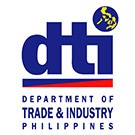- Home
- |
- About Us
- |
- Working Groups
- |
- News
- |
- Rankings
- WEF-Global Competitiveness Report
- Ease of Doing Business Report
- IMD-World Competitiveness Yearbook
- TI-Corruption Perceptions Index
- HF-Economic Freedom Index
- WEF-Global Information Technology Report
- WEF-Travel and Tourism Report
- WIPO-Global Innovation Index
- WB-Logistics Performance Index
- FFP-Fragile States Index
- WEF-Global Enabling Trade Report
- WEF-Global Gender Gap Report
- Gallery
- |
- Downloads
- |
- Contact Us
Joint Memorandum Circular (JMC) to Speed up Issuance of Construction-related Permits Signed

The Department of Trade and Industry sees improvement in the ease of doing business in the country, with the implementation of the Joint Memorandum Circular (JMC) directing local government units (LGUs) to streamline the issuance of building permits and certificates of occupancy.
For the first time, the JMC 2018-01, which was issued by the Departments of Public Works and Highways (DPWH), Interior and Local Government (DILG), Information and Communications Technology (DICT) and DTI, sets service standards for processing simple applications for construction-related permits. This is in response to President Duterte’s call to simplify the issuance of permits by LGUs in support of the Build Build Build Program of the government. The JMC covers single dwelling residential buildings of not more than three floors, commercial buildings of not more than two storeys, renovation within a mall with issued building permits and warehouses storing non-hazardous substances.
As prescribed in the circular, LGUs are enjoined to set up a processing system that will ensure that applicants follow a four-step procedure in securing building permits – submission of application with complete documentation, receipt of the order of payment, payment of fees and claiming of the permits. Processing time by LGUs is reduced to five (5) working days maximum, while that for BFP permits is limited to not more than three (3) days for building permit applications. The same number of steps and processing time are prescribed for applications for certificates of occupancy. The JMC also recommended a pre-formatted form and a uniform set of documentary requirements, and a one-time assessment and one-time payment of fees, with the latter eliminating the current practice of separately paying for different construction-related documentary clearances in different LGU offices and the BFP.
To be able to comply with the service standards, the government is mandating LGUs to establish one-stop shops that will consolidate the processing of clearances issued by LGUs related to construction permits, such as building permits, certificates of occupancy, locational clearances, tax declaration, tax clearances, certificates of final electrical inspection as well as those required by the Bureau of Fire protection – the Fire Safety Evaluation Clearance and the Fire Safety Inspection Certificate. To be able to do this, representatives from the Office of the Building Official (OBO), Treasury Office, Zoning Office, Assessor’s Office of the LGU, and Bureau of Fire Protection (BFP) will be co-located in one area at the LGU. Joint inspection teams will also be organized to ease the burden of applicants in accommodating multiple inspections by different offices before their certificates of occupancy are released.
DTI Secretary Ramon Lopez, who chairs the National Competitiveness Council and Doing Business Task Force, is confident that the recently signed circular will bring significant results in the Philippines’ ranking in Doing Business Report.
“We fervently support the implementation of this circular, as it strengthens our previous efforts to eliminate red tape. Now that JMC 2018-01 is in place, we look forward to improved ease of doing business and better performance in Doing Business rankings.” Secretary Lopez said.
Last year, Philippines dropped 14 notches to No. 113 in Doing Business Report published by World Bank-International Finance Corp. Particularly, the country ranked No. 101 in Dealing with Construction Permits.
Following the drastic process re-engineering that LGUs will be undertaking as a result of the JMC, the Secretary is also persuading the cities, especially those in highly urbanized areas, to start developing a web-based system for online submission and processing of construction-permits similar to the processes already being implemented by some ASEAN countries. This is also in line with the JMC which enjoins LGUs to automate procedures, including the mode of payment, with the support of DICT.
###

